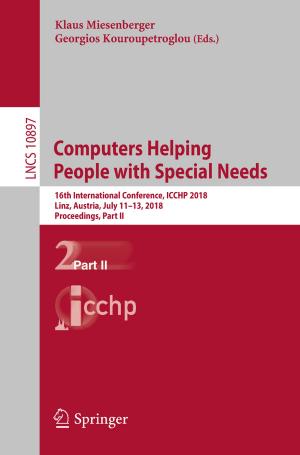Democracy and Judicial Reforms in South-East Europe
Between the EU and the Legacies of the Past
Nonfiction, Reference & Language, Law, International, Business & Finance, Economics, International Economics, Social & Cultural Studies, Political Science| Author: | Cristina Dallara | ISBN: | 9783319044200 |
| Publisher: | Springer International Publishing | Publication: | July 8, 2014 |
| Imprint: | Springer | Language: | English |
| Author: | Cristina Dallara |
| ISBN: | 9783319044200 |
| Publisher: | Springer International Publishing |
| Publication: | July 8, 2014 |
| Imprint: | Springer |
| Language: | English |
The book analyzes the topic of judicial reforms in four countries of South-East Europe, focusing on two specific factors that have influenced the reforms in the past two decades: the role played by the European Union in light of the east Enlargement process and the legacies of the communist regimes. Specifically, the aim is to account for similarities and differences in the reform paths of Slovenia, Romania, Croatia, and Serbia. In each country, in fact, the influence of the EU policies has been differently mediated by national factors that, broadly conceived, may be considered as expressing the legacies of the past regimes. In some cases, these legacies challenged judicial reforms and inhibited the influence of the EU; in other cases, they were positively overcome by following the route suggested by the EU. Some explanatory factors for these differences will be proposed drawing from democratization studies, Europeanization literature, and comparative judicial systems.
The book focuses on countries having different status vis-a` -vis the EU and differently involved, in term of timing, in the EU accession process: some of them are new member states entered in 2004 (Slovenia) or in 2007 (Romania); others were, until recently, acceding countries (Croatia) or candidates to the membership (Serbia). This comparison allows investigation of the power of EU conditionality in different phases of the EU enlargement process.
vis-a` -vis the EU and differently involved, in term of timing, in the EU accession process: some of them are new member states entered in 2004 (Slovenia) or in 2007 (Romania); others were, until recently, acceding countries (Croatia) or candidates to the membership (Serbia). This comparison allows investigation of the power of EU conditionality in different phases of the EU enlargement process.
The book analyzes the topic of judicial reforms in four countries of South-East Europe, focusing on two specific factors that have influenced the reforms in the past two decades: the role played by the European Union in light of the east Enlargement process and the legacies of the communist regimes. Specifically, the aim is to account for similarities and differences in the reform paths of Slovenia, Romania, Croatia, and Serbia. In each country, in fact, the influence of the EU policies has been differently mediated by national factors that, broadly conceived, may be considered as expressing the legacies of the past regimes. In some cases, these legacies challenged judicial reforms and inhibited the influence of the EU; in other cases, they were positively overcome by following the route suggested by the EU. Some explanatory factors for these differences will be proposed drawing from democratization studies, Europeanization literature, and comparative judicial systems.
The book focuses on countries having different status vis-a` -vis the EU and differently involved, in term of timing, in the EU accession process: some of them are new member states entered in 2004 (Slovenia) or in 2007 (Romania); others were, until recently, acceding countries (Croatia) or candidates to the membership (Serbia). This comparison allows investigation of the power of EU conditionality in different phases of the EU enlargement process.
vis-a` -vis the EU and differently involved, in term of timing, in the EU accession process: some of them are new member states entered in 2004 (Slovenia) or in 2007 (Romania); others were, until recently, acceding countries (Croatia) or candidates to the membership (Serbia). This comparison allows investigation of the power of EU conditionality in different phases of the EU enlargement process.















